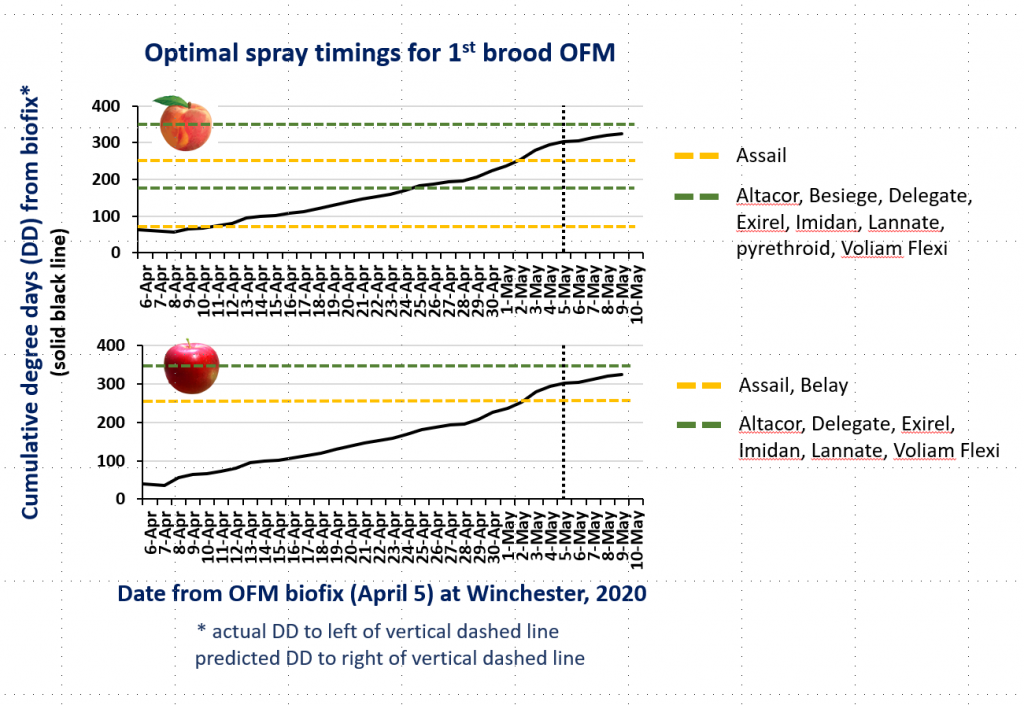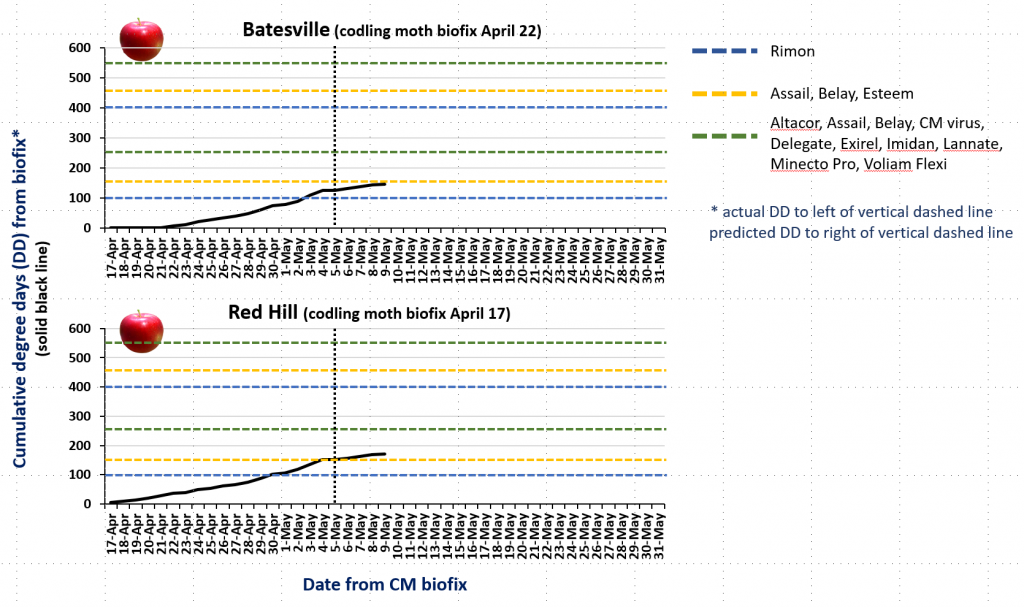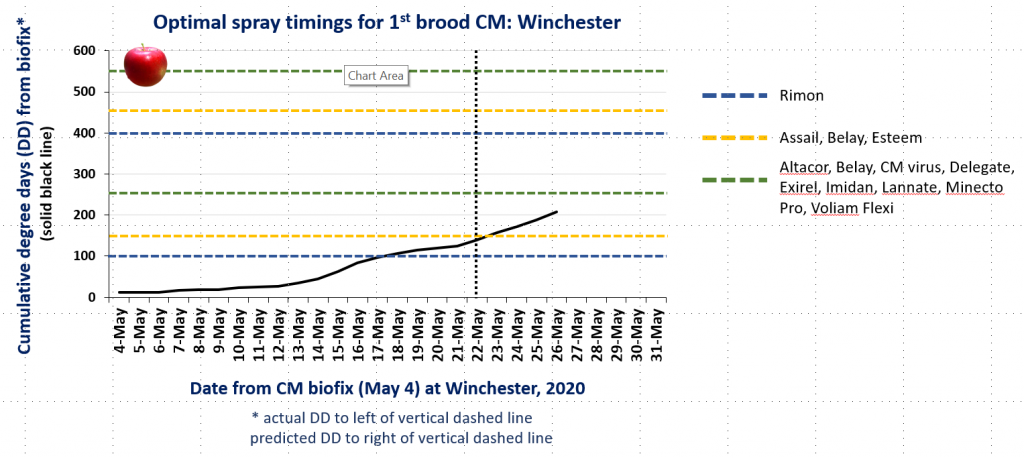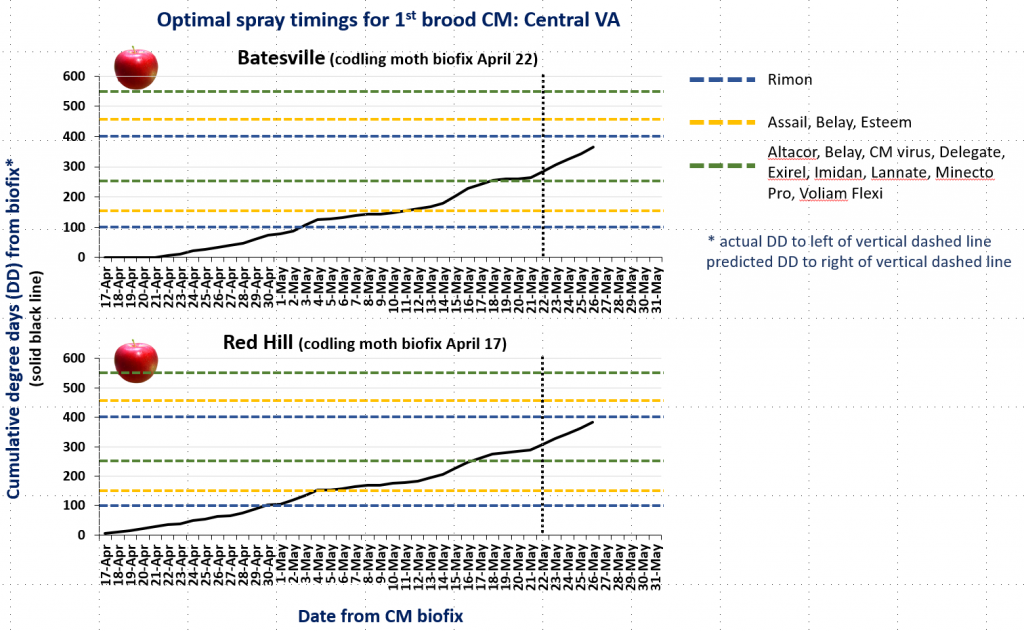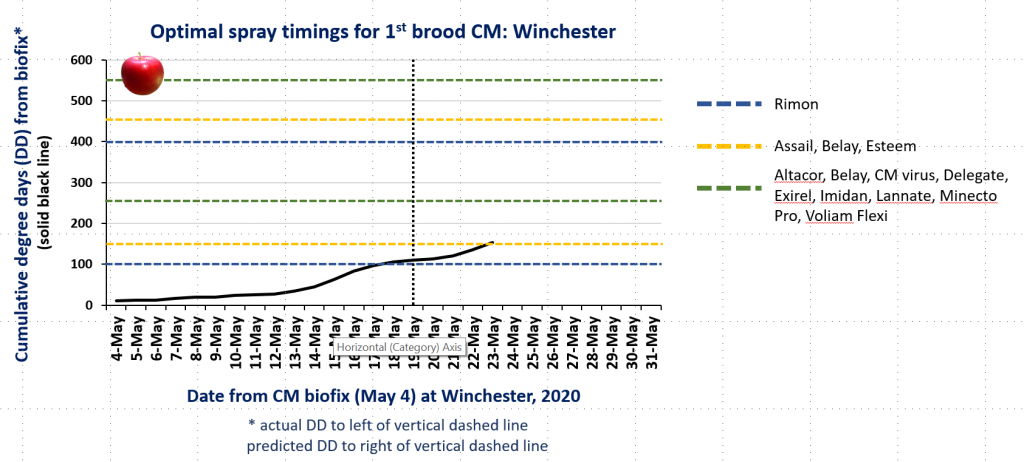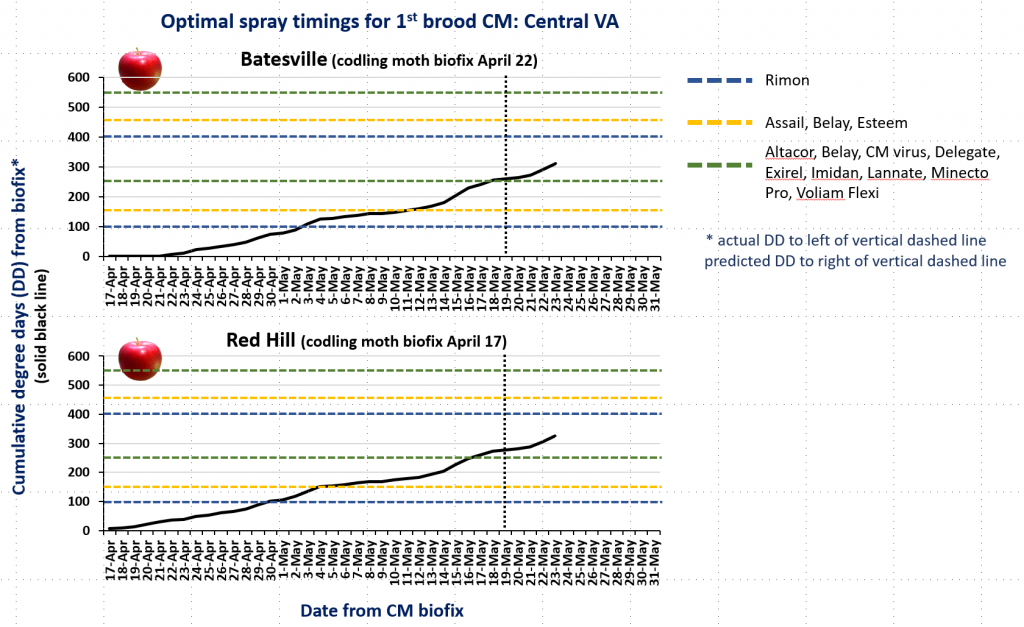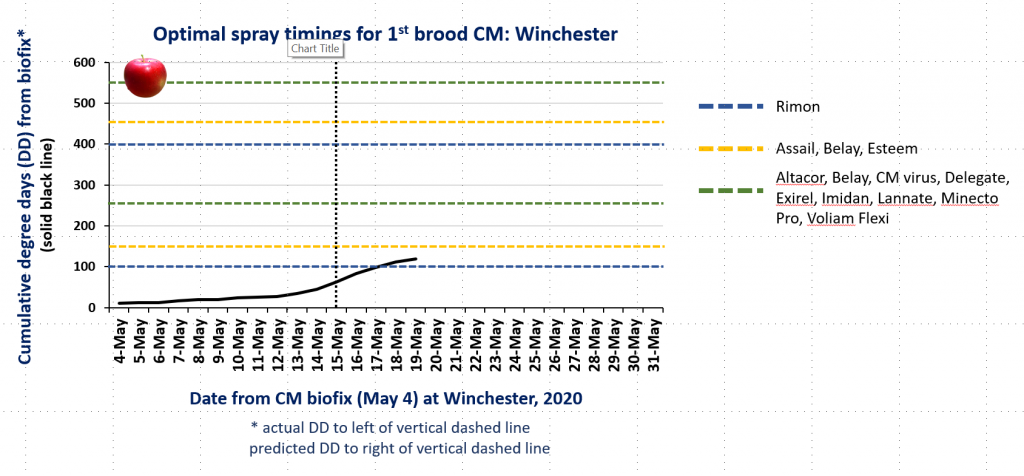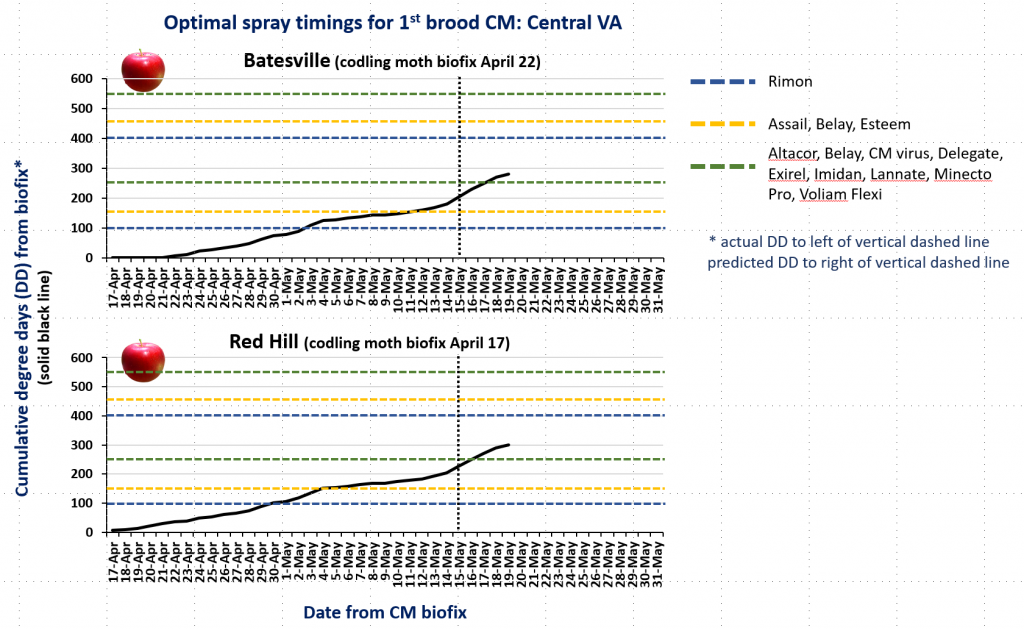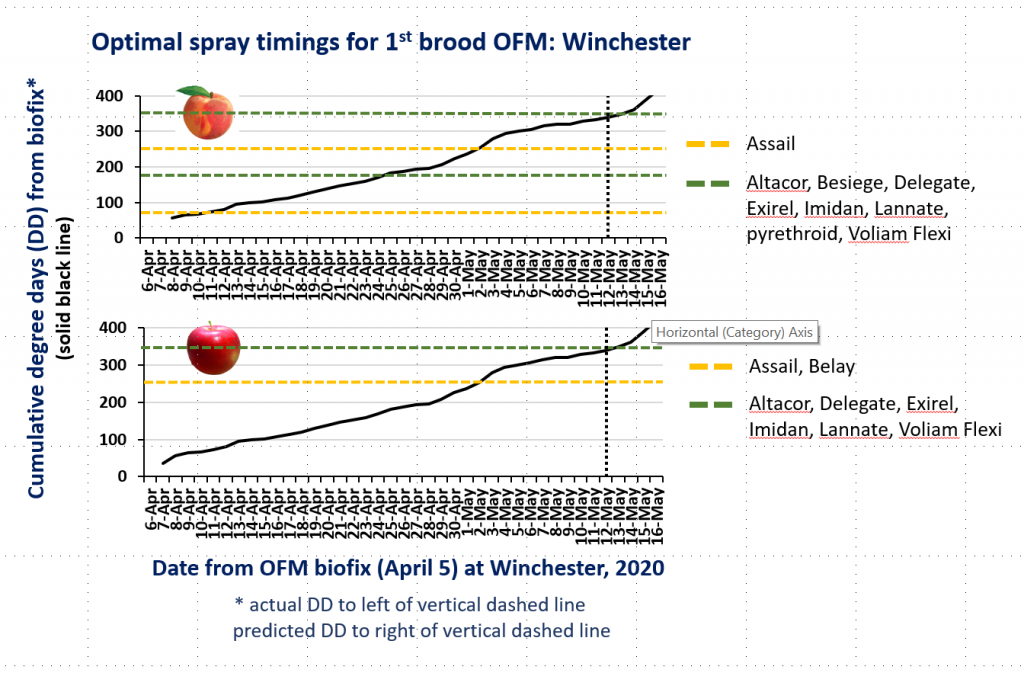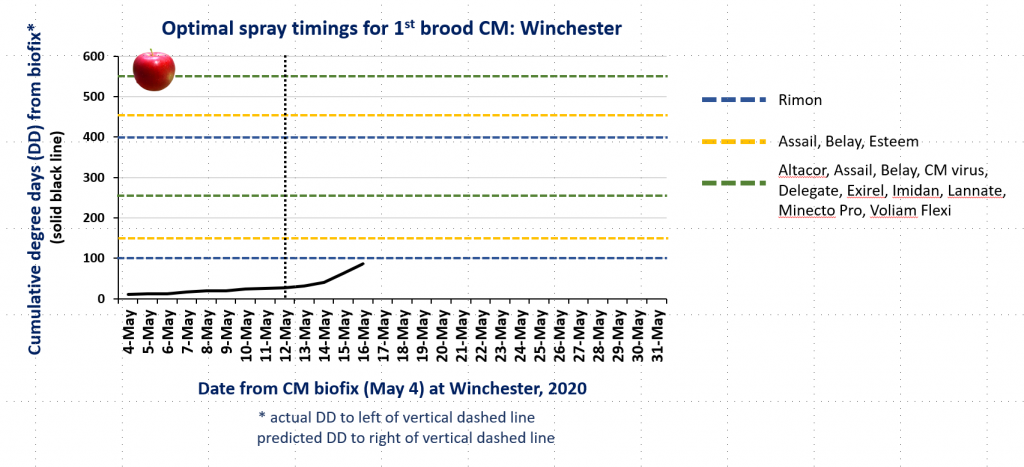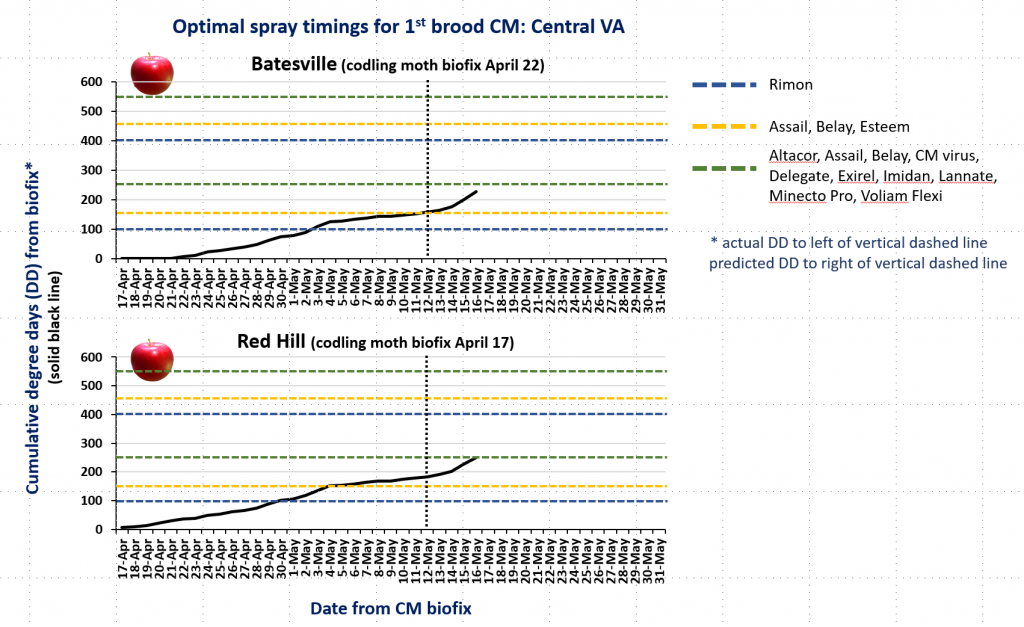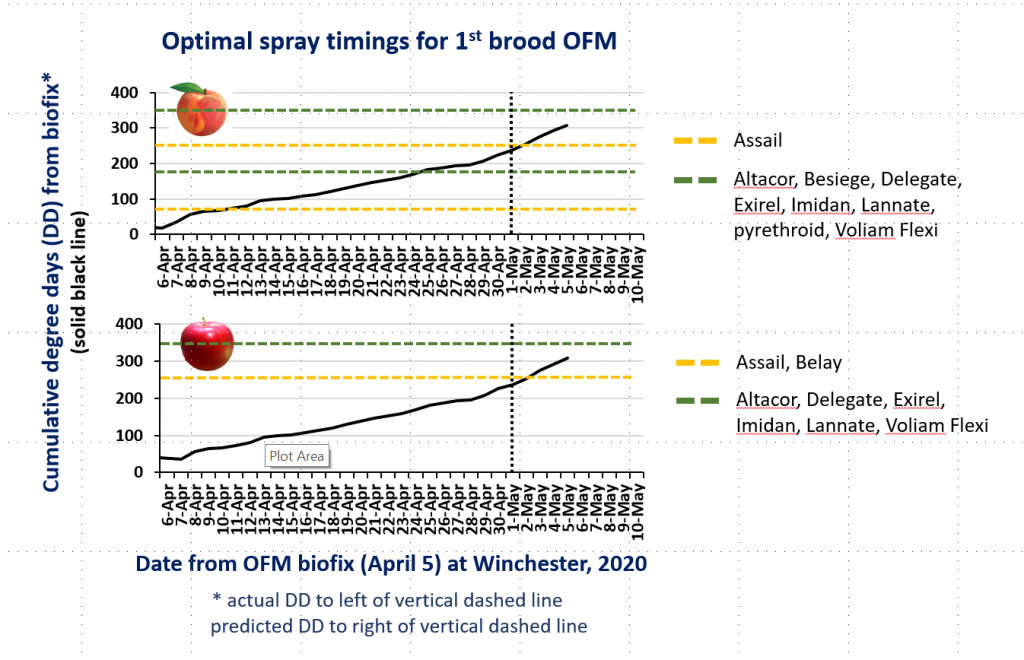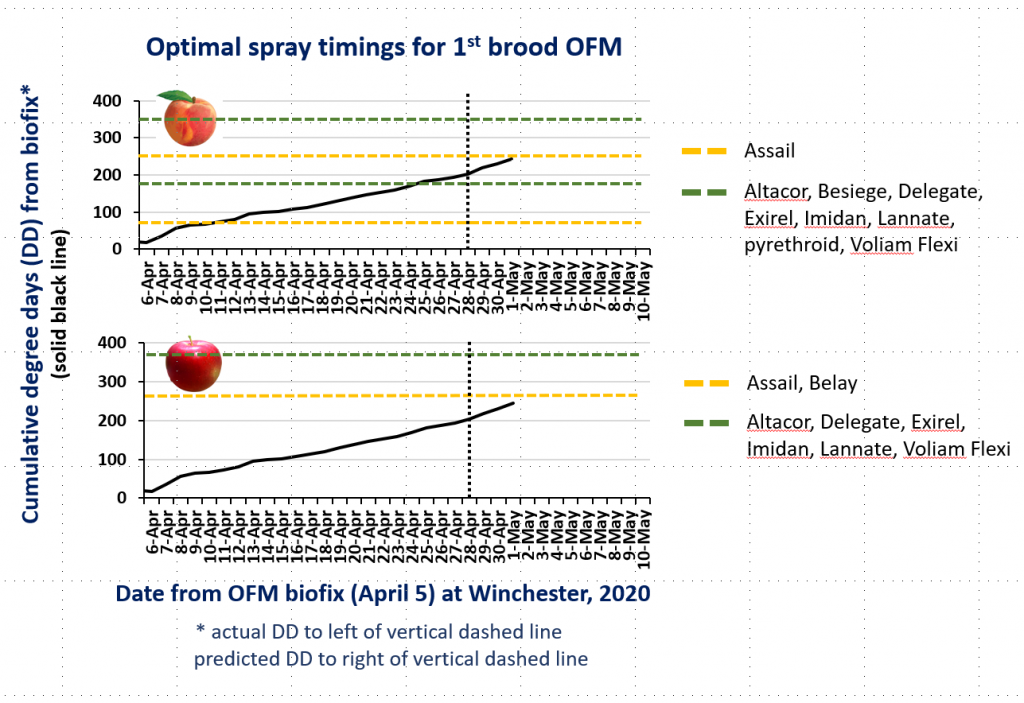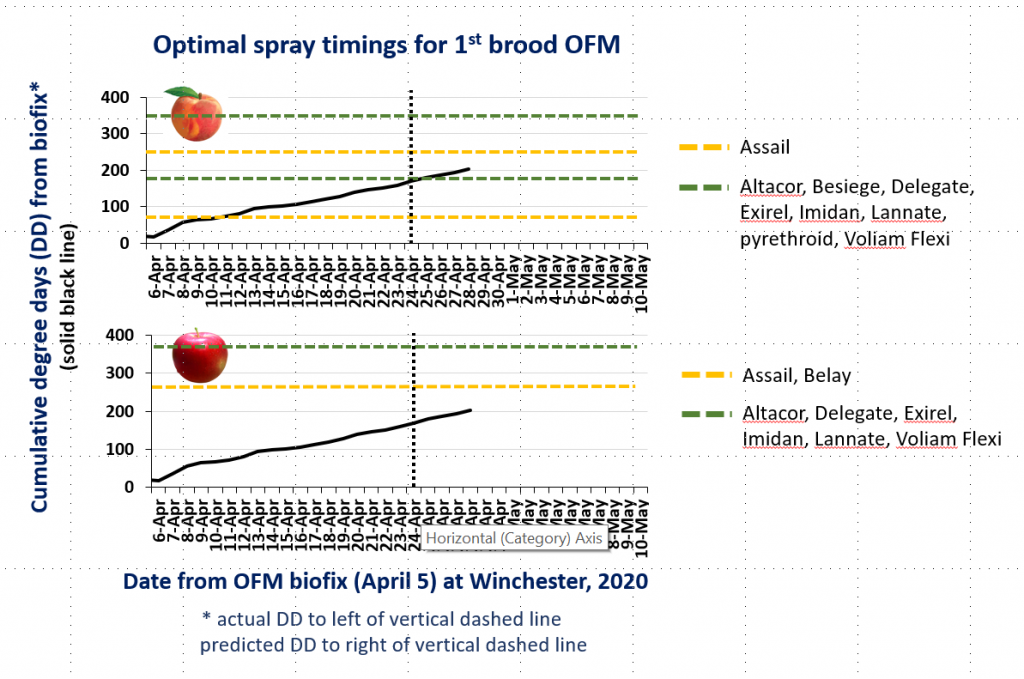On May 21, 2020 the Environmental Protection Agency approved the renewal of a Section 18 Emergency Exemption for use of the bifenthrin-based products, Brigade WSB, Bifenture EC, and Bifenture 10DF against brown marmorated stink bug (BMSB) in apples, peaches, and nectarines in Virginia. This exemption applies only to the products mentioned above. These and other bifenthrin-based insecticides have a Section 3 label for use in pears. The requirements of this Section 18 are that applications must be made only from the ground, at a rate of 0.08 to 0.2 lb active ingredient (a.i.) per acre, with not more than 0.5 lb a.i. per acre per season. These application rates equate to 5.12 – 12.8 fl oz of Bifenture EC, and 12.8 – 32.0 oz of Bifenture DF or Brigade WSP per acre. Seasonal maximums are 32 fl oz of Bifenture EC, 80 oz of Bifenture DF, and 72 oz of Brigade WSB. Multiple applications may be made per season, at a minimum retreatment interval of 30 days. The REI is 12 hours and the PHI is 14 days. This insecticide is extremely toxic to fish, aquatic invertebrates, and bees, and all precautions to avoid these exposures must be observed. Bifenthrin is considered one of the strongest insecticides against BMSB but can be disruptive to natural enemies of secondary pests. Consequently, we recommend use in apples later in the season, when BMSB populations are highest. In peaches and nectarines, it can be useful from fruit set until 14 days before harvest. This Emergency Exemption expires on October 15, 2020. A petition to support a Section 3 registration for bifenthrin in these crops is currently under review with the EPA.
Author Archives: Chris Bergh
CM Degree Days and Optimal Spray Timing, 5.21.20
CM Degree Days and Optimal Spray Timing, 5.18.20
CM Degree Days and Optimal Spray Timing, 5.14.20
OFM and CM Degree Days and Optimal Spray Timing, 5.11.20
OFM and CM Degree Days and Optimal Spray Timing, 5.7.20
We have set codling moth (CM) biofix at Winchester for May 4, based on captures of a few moths last weekend, but only one since. Sustained flight of CM is not expected until temperatures warm considerably, and upcoming weather conditions will result in very slow degree day accumulations through the middle of next week.
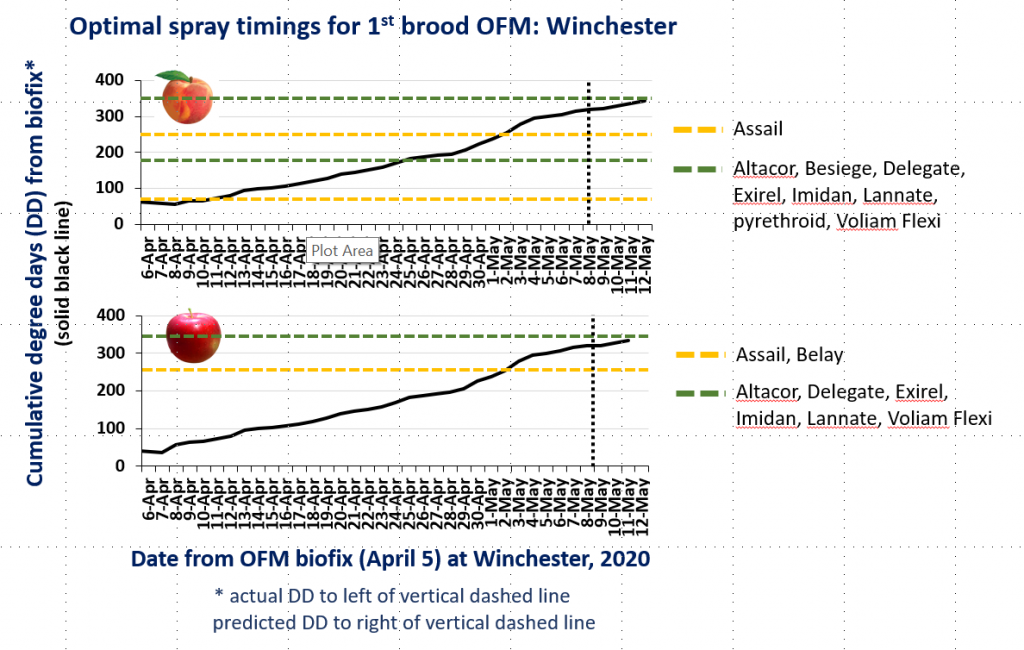
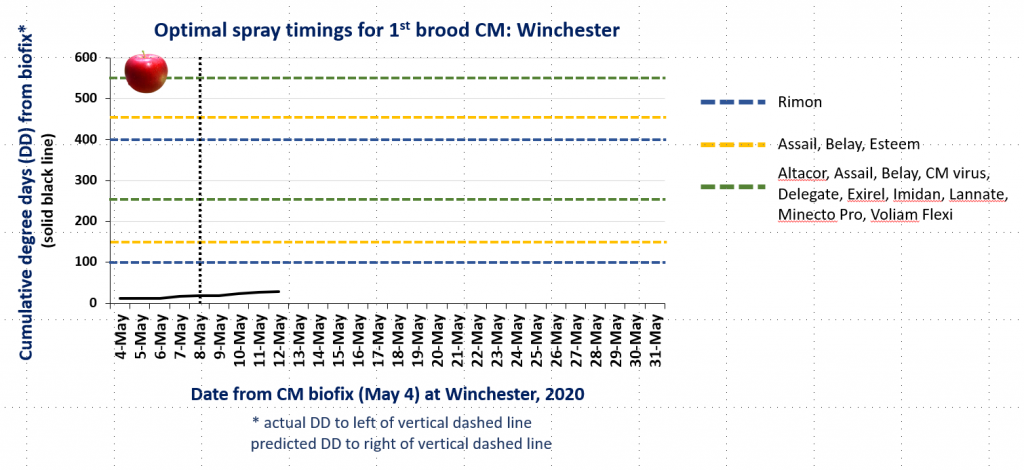
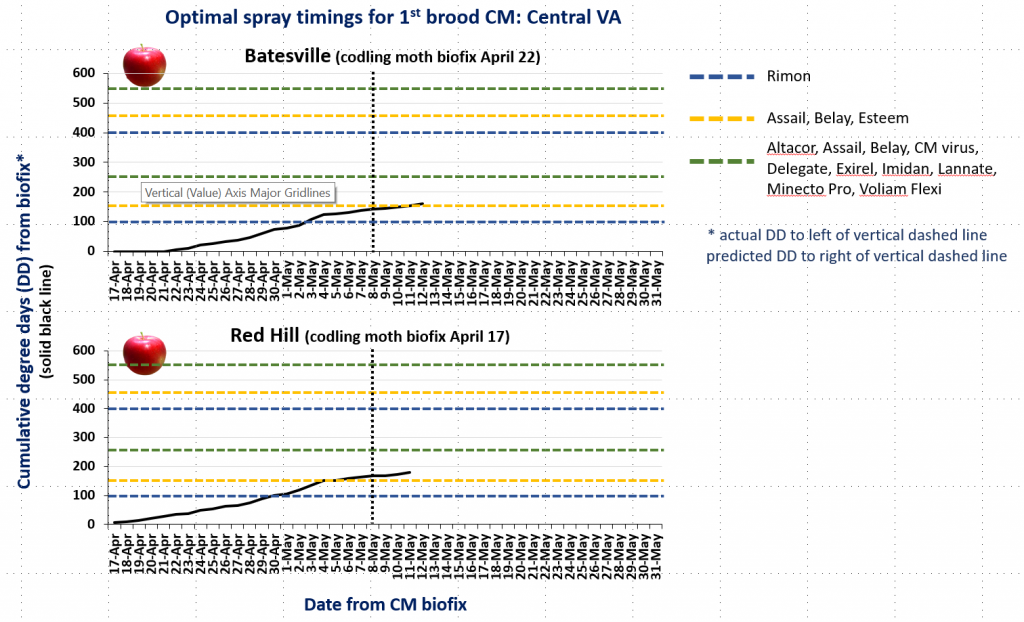
OFM (Winchester) and CM (Central VA) Degree Days and Optimal Spray Timings, May 4, 2020
We captured our first codling moths (CM) at the Winchester AREC on Saturday evening, May 2. Unexpectedly, there were no new moths in traps today, but we’ll keep checking. CM have been captured in central VA for about 2 weeks, so I am now including graphs for CM degree day accumulations from biofix based on the Batesville and Red Hill NEWA weather stations.
